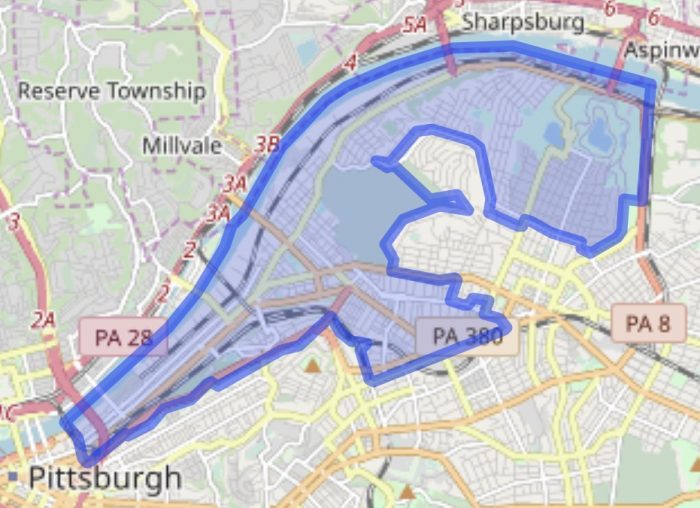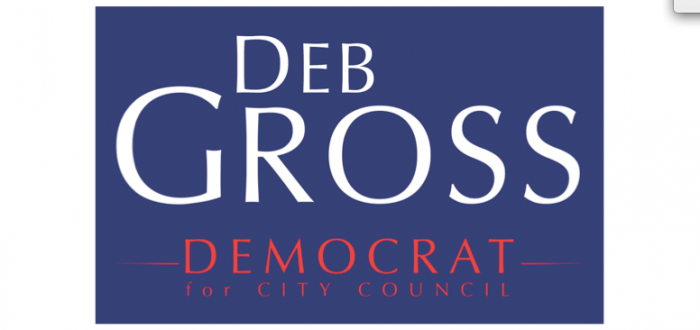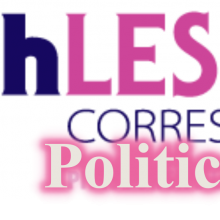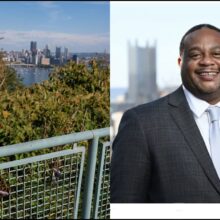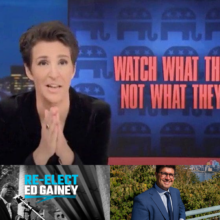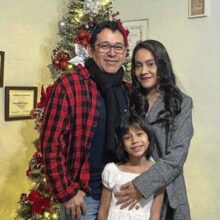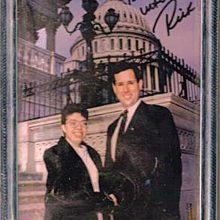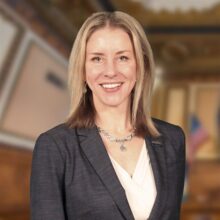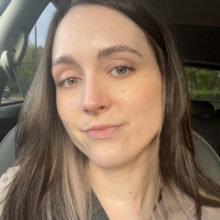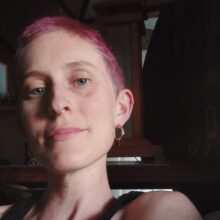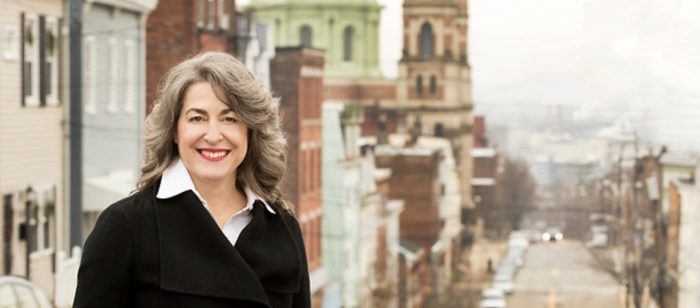
We are revisiting our Political Q&A series for the upcoming elections of 2019. We’ve reached out to candidates who are pro-choice and pro-LGBTQ, asking them a series of questions about their campaigns. We’ve sent out about a dozen Q&A’s to folks who agreed to participate. Candidates can be anywhere in Pennsylvania running for any level of office. Please note that these are not necessarily endorsements, more of an opportunity for candidates to connect with the LGBTQ community, progressives neighbors, and others with an interest in Western Pennsylvania. If your candidate would like to participate, please contact us pghlesbian at gmail dot com. We have
Our next respondent is Deb Gross, the incumbent City Councilor for District 7. She is seeking reelection. I’ve known Deb for several years and find her to be a bright, energetic, and very hard-working. I see her at all sorts of venues and events in Pittsburgh. And she’s known for her independence an d bucking the system, qualifies with which I can identify.
I’ve published a Q&A with Liv Bennett and Deb Gross. I’ve sent Q&A’s at their request to Kenneth Wolfe, Pam Harbin, Anna Batista, Bethany Hallam, Judith K. Ginyard, Kierran C. Young, and Jessica Rothchild (open lesbian running for Scranton Council) Kenneth Wolfe Pam Harbin Anna Batista for PPS School Board Bethany Hallam Judith K. Ginyard Kierran C. Young and Jessica Rothchild (open lesbian running for Scranton Council.) Allegheny County Council Candidate Christine Allen has declined to participate and I’ve sent the information about the Q&A to other regional candidates, inviting them to request a Q&A.
Your Pronouns: She/Her/Hers
The Office You Are Seeking: City Council District 7
How do you describe your identity? Straight cisgender white woman
Tell us about the first LGBTQ person you met and what impact they had on your life? In 1986, I was in college and was an active member of the campus NOW chapter. There were only five of us in the chapter, including me and a Cuban immigrant, who was also a lesbian.This was during the the peak of the feminist backlash, and these were dark days for LGBTQ rights. We were struggling to remain an approved student organization on campus and were organizing a feminist and gay-friendly independent film festival. We successfully asked bands volunteer for a fundraising concert, and succeeded in recruiting many members to the chapter, securing the organization for a few more years.
Please tell me about your familiarity with the LGBTQ community in your district and the region. Please specify how you have worked with the LGBTQ community on initiatives while in your current office. As a lifelong activist and ally, I have always tried to listen to, support, and uplift the voices of the LGBTQIA+ community. In District 7, the LGBTQIA+ is fairly well represented, and I do what I can to represent those voices in both policy and in constituent services dealing with City bureaucracies. I have attended memorial services for homicide victims. I have supported community fundraising for victims and families. Recently, I assisted same-sex partners who were struggling with proving to the Parking Authority that they should be able to have a residential parking permit! Both while on and before being on Council, I have worked to ensure that the community has equal access to all rights, responsibilities, and benefits, including healthcare for trans*-related medical expenses. I have also sponsored and co-sponsored Wills of Council supporting the trans community specifically, especially as the community has suffered from relentless attacks from this White House and federal government.
Based on this, what do you understand to be our top LGBTQ concerns and priorities for City Council? How will you respond to those priorities? I understand my role to be to listen to the community’s concerns and use my voice and position to amplify and fight for those concerns. For example, I am currently working with constituents to better support small businesses and nonprofits that are focused on LGBTQIA members, particularly around youth aging out of the foster system and on elders who may need supportive living services. I believe I have a solid understanding of the concerns LGBTQIA+ residents have both in my district and in the city generally, but it is not my right to determine priorities. I have and will continue to center the voices of members of the community to make that determination, and then follow their lead. Centering marginalized voices–particularly those of QTPOC, who are the most underrepresented–is my primary goal when setting and carrying out legislative priorities.
How does intersectionality inform your work? I am keenly aware of the historic failure of white feminists (like me) to view progress, equity, and inclusion through an intersectional lens. Of course I still have work to do–most of us do–but I am actively listening and learning and trying to ensure that I uplift the voices of the most marginalized members of my district and my city, and understand the ways intersections impact everyday issues like affordable housing, public education, public accommodations, safe water and clean air, and more. For example, I have put forward names of women of color for board and commission nominations and I am particularly committed to exposing and addressing environmental racism.
The threats of ‘religious liberty’ laws and exemptions target both LGBTQ rights and women’s rights. How does City Council navigate this equivalency of personal religious freedom with systemic oppression and control of underserved people? We can both uphold the freedom to practice our diverse faiths and ensure that every member of society has the freedom to live their lives as their true and full selves. There is no mutual exclusivity there. The freedom to practice a chosen religion does not and should not include the freedom to discriminate. As a public servant, first and foremost it is my responsibility to make government work for the people, not the church, or any other institution or corporation. I will always work to shift the balance of power into the hands of the people, where it belongs. I am committed to working to pass legislation that provides affordable housing, family-sustaining wages, enforces non-discrimination policies, affirms and expands civil rights, and fights systemic oppression in all forms.
You are particularly well known for your leadership on affordable housing and safe drinking water. What lessons have those issues taught you that will inform your next term? I demanded that we use a gender as a lens through which we think about housing and water. This helped highlight the vulnerable population of Pittsburghers who needed immediate public health protection and action: mothers of young children. In addressing the damage to our water quality, I advocated for immediate free water filter pitchers and we were able to raise funds and distribute 20,000 pitchers, prioritizing households with children. In replacing thousands of lead water service lines, we have prioritized neighborhoods that are low and moderate income, and that have a higher density of children in the home — Homewood, Hill District, Northside, Lawrenceville, and Morningside have seen hundreds of lines removed. In housing, we know that 70% of the poorest households in the City (some 5,000 households) are women-headed households with children, and we know that those households have cost burdens across daily needs — housing, food, childcare, transportation. That’s why we must always listen to community voices. That is why it is critical that we heed the voices of those who have asked us to represent them, particularly those with the least power. It is a privilege to serve, and I can always do better using that privilege to represent the voices that struggle to be heard. Here in Pittsburgh, there are active and engaged coalitions who are working on both of these critical issues. I work closely with them, and I will continue to. It can sometimes be tricky to both lead and listen simultaneously, and I’m always working on navigating those lines. But it is incumbent upon me to serve my community, not the other way around.
Tell me about your other endorsements and supporters. Allegheny-Fayette Joint Labor Council, AFSCME, Pittsburgh Federation of Teachers, Steel City Stonewall Democrats, Women for the Future, State Representative Sara Innamorato, Planned Parenthood PA Advocates, Clean Water Action.
Is there anything you’d like to add? In Pittsburgh, we take care of each other. I am humbled everyday to support the good work that Pittsburghers are doing for each other.
Where can readers find your campaign on social media? I tweet from my own account at https://twitter.com/DebGrosspgh, and my campaign is at https://www.facebook.com/FriendsOfDebGross on Facebook.


